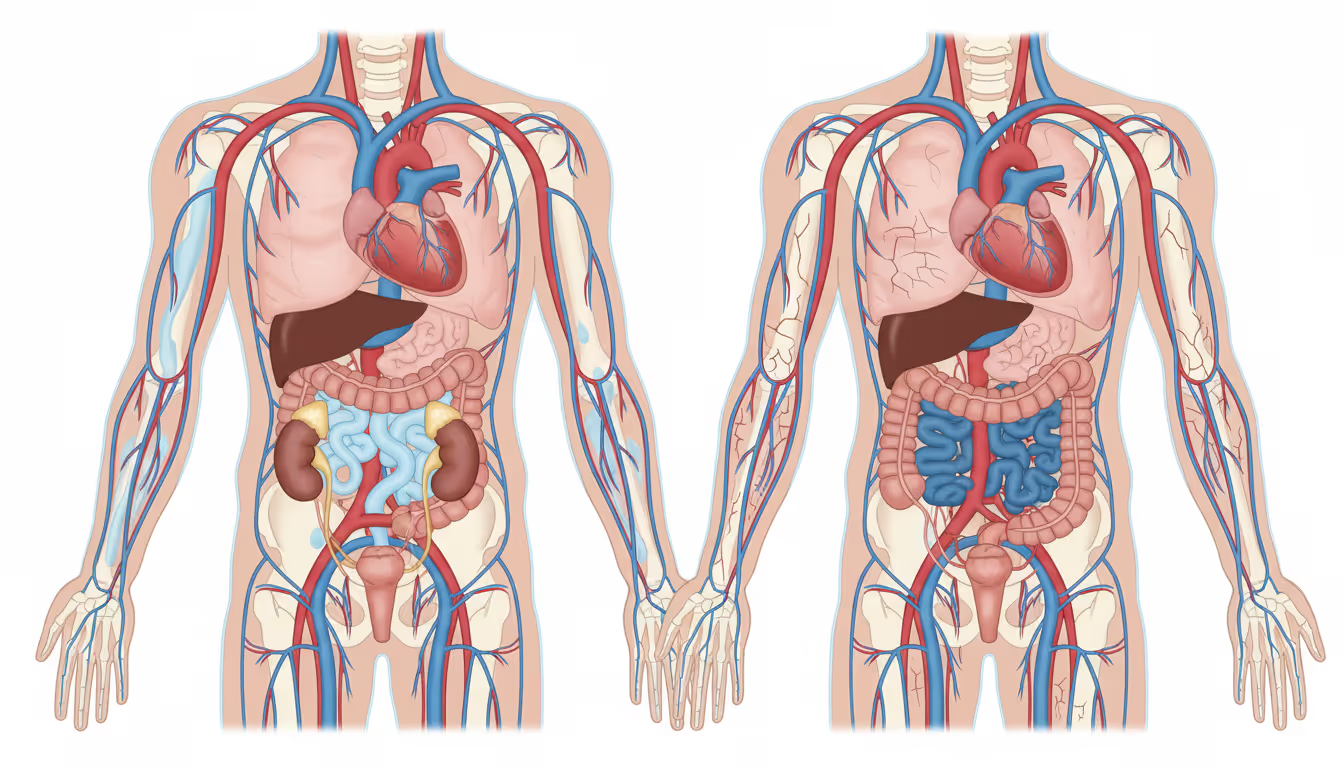
Dehydration refers to the significant loss of body water. Conditions that lead to vomiting or diarrhea can result in dehydration. Other factors contributing to dehydration include exposure to high temperatures, extended periods of intense physical activity, kidney disorders, and the use of diuretics. A sudden, noticeable weight loss can indicate dehydration, with a reduction of more than 10% of body weight (such as 15 pounds in a 150-pound individual) being considered severe. Signs and symptoms of dehydration include an increasing thirst, weakness, dizziness (especially when standing), and either darker urine or decreased urination. Severe dehydration can disrupt the body's chemical balance and result in kidney failure, posing a life-threatening risk.In children, dehydration caused by diarrhea is a leading cause of illness and death. Children experience quicker fluid turnover compared to adults, leaving less room for error during rehydration. The younger the child, the more vigilant the care must be. Special attention is required when organ functions, such as those of the skin, heart, brain, or kidneys, are critically affected. Overhydration is as dangerous as severe dehydration in children, necessitating medical supervision during rehydration.The most effective way to manage dehydration is to prevent it. If excessive fluid loss is suspected, it is important to contact a doctor, as intravenous or oral fluid replacement might be necessary.




